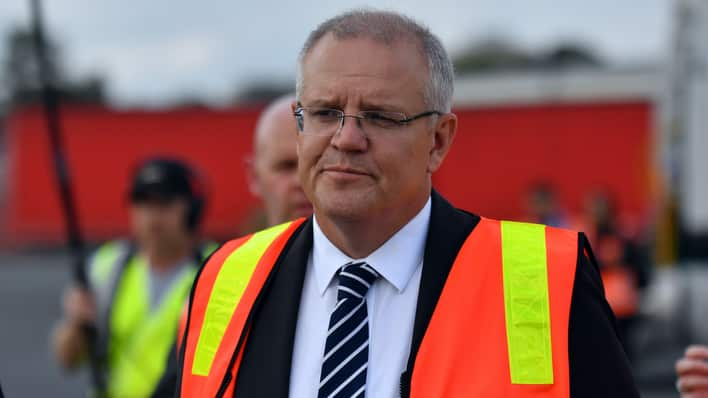One of Australia's most marginal electorates is set to be "devastated" by climate change unless emissions are cut, according to a new report.
On Tuesday, the Australia Institute released for the Central Queensland seat of Capricornia, currently held by the Coalition's Michelle Landry by just 0.6 per cent.
The left-leaning think tank painted a grim picture of the electorate's future if emission rates continue to rise.
"Increasing natural disasters, drought and heatwaves will impact the community's health, infrastructure and vital industries, particularly agriculture and mining," the report said. It found that if emissions continue to rise, by 2070 the electorate could experience up to twice as many heat wave days per year, a 90-130 per cent increase in the frequency of droughts and flooding, and up to a 50 per cent reduction in rainfall.
It found that if emissions continue to rise, by 2070 the electorate could experience up to twice as many heat wave days per year, a 90-130 per cent increase in the frequency of droughts and flooding, and up to a 50 per cent reduction in rainfall.

Increases in number of days over 35 degrees in the electorate of Capricornia, according to the report. Source: The Australia Institute
The Australia Institute drew on available state and federal government data to make the projections.
'Biggest threat' facing Capricornia?
Mark Ogge, principal adviser on climate and energy at the Australia Institute, said the report pointed to "disaster" for the region.
"Climate change is undoubtedly the biggest threat facing the electorate of Capricornia," Mr Ogge told SBS News on Tuesday. He said the projections around heat waves were particularly worrying.
He said the projections around heat waves were particularly worrying.

Cattle in Queensland. Source: AAP
"There could be heat waves in 2070, which is well and truly within the lifetime of our children, that go for over a month. Currently, heat waves go for a few days or a week at the most," he said.
"Having those kinds of extreme temperatures for a month at a time in a single heat wave is frightening."
Mr Ogge said he expected the issue of climate change to impact the 18 May vote in the electorate and around Australia.
"If our elected representatives are too scared to face up to the reality of climate change and unable to step up to the challenge, then they're asleep at the wheel, they're really letting down their constituents on a very fundamental level," he said. But he said "the good news" was if the world achieved the 1.5 degree Paris target then "almost all of these impacts can be avoided".
But he said "the good news" was if the world achieved the 1.5 degree Paris target then "almost all of these impacts can be avoided".

The report was released on Tuesday. Source: AAP
Looming election
Addressing climate change is shaping up as one of the key points of difference between the Coalition and Labor.
The Coalition government wants to reduce carbon emissions by at least 26 per cent by 2030, although it plans to use credits from exceeding Australia's Kyoto commitments.
Prime Minister Scott Morrison has said as a result of government efforts, the target will be met "in a canter".
Across the aisle, the Labor Party has said it will strengthen Australia's 2030 target to 45 per cent and plans not to use carry-over credits. Labor is also promising to inject $15 billion into the Clean Energy Finance Corporation to fund renewable energy projects and reducing the cap on pollution for 250 of Australia’s biggest emitters.
Labor is also promising to inject $15 billion into the Clean Energy Finance Corporation to fund renewable energy projects and reducing the cap on pollution for 250 of Australia’s biggest emitters.

Scott Morrison says that because of government efforts, emissions target will be met "in a canter". Source: AAP
But the party has come under pressure over its failure to put a dollar figure on how much its emissions reduction plans would cost.
Who’s running in your electorate? Check out our interactive map
Additional reporting: AAP

